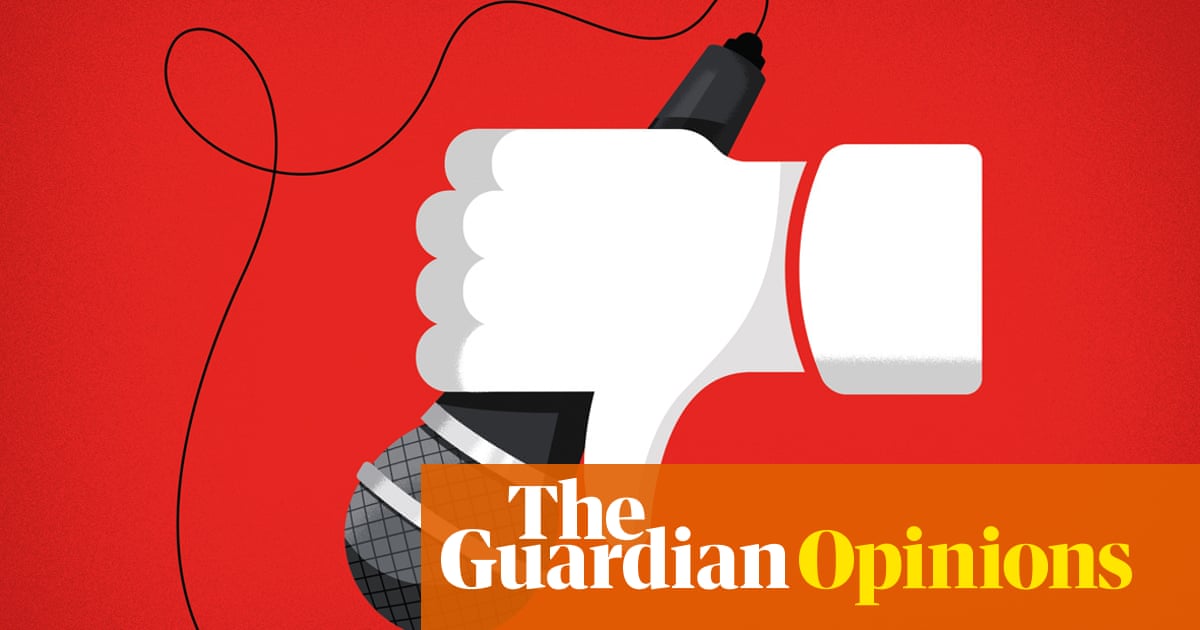Summary, at noon GMT
As clocks strike noon in the City of London, here’s a quick recap of events on a historic day.
Donald Trump’s resounding win over Kamala Harris in the US presidential race has triggered wild swings in the financial markets.
The dollar has surged by 1.6% against a basket of rival currencies, and on track for its best day since March 2020.
The rally has pushed the pound down by almost two cents today to $1.2856.
The euro has also weakened, down 2% to $1.0706, while Mexico’s peso has dropped to a two-year low.
Bitcoin, though, has hit a record high as traders anticipate a crypto-friendly White House.
Shares in the next president’s social media group, Trump Media & Technology Group, are on track to surge 36%.
Economists warned that Trump’s economic policies would be inflationary, leading to higher US interest rates than would otherwise be the case, strengthening the dollar, and boosting shares in US banks.
This has also hurt US government bond prices, driving up the yield on 10-year Treasury bills as investors anticipate interest rates will be higher than previously expected in coming years.
Julian Howard, chief multi-asset investment strategist at GAM Investments, says:
“In the short term, markets are reflecting what they see as the ‘Trump trade’. This means strong gains in US equity futures this morning given that the tax cuts of 2017 will presumably be extended for consumers and business owners. It also means gains in technology stocks since Mr. Trump’s significant backers include Elon Musk who is set to become the new administration’s efficiency czar.
“But it also means a firmer US dollar amid concerns that a booming US economy already nursing a significant budget deficit will run out of capacity and, along with the presumed imposition of tariffs, will drive up inflation and therefore rates too.
“US Treasuries concur, with real yields (growth expectations) rising and breakevens (inflation expectations) rocketing even faster, pushing the 10-year US Treasury yield up beyond a heady 4.4%. There are potentially implications for the US Federal Reserve which only recently cut rates by 50 basis points and meets again this week, but now faces a stronger economy and maybe even more future inflation as described.
The market-anticipated 50 bps cut may have to be revised, although the Fed will be at pains to stress that it doesn’t react to political events, only the data in front of it.
With the Republicans also taking control of the Senate, Trump now has a platform to implement policies such as tax cuts, tariffs on US imports, and tougher immigration controls.
The chair of the British foreign affairs committee Emily Thornberry has warned of the “chilling effect” a Donald Trump presidency will have on trade in EU, and the UK.
Commodity prices have weakened, on fears of a global trade war that would hurt global demand for industrial materials such as copper and iron ore.
There are ructions in the car industry following Trump’s win. Shares in electric car maker Tesla are now up 12% in pre-market trading, which could push up the value of Elon Musk’s stake by around $12bn.
But German carmakers’ shares are sliding, with tariff war fears wiping 7% off the value of Porsche and BMW
Key events Show key events only Please turn on JavaScript to use this feature
Irish Prime Minister Simon Harris has warned that that the risk of a transatlantic trade shock is rising.
Harris made the comments shortly after congratulating Donald Trump on his election as U.S. president, Reuters reports.
⚠ IRISH PM SAYS RISK OF A TRANSATLANTIC TRADE SHOCK IS RISING
— PiQ (@PiQSuite) November 6, 2024Harris was speaking in parliament in relation to his government’s policy of partly setting aside big budget surpluses. in a new sovereign wealth fund, saying it was doing so “at a time when the risk of a transatlantic trade shock is rising.”
Taoiseach Simon Harris has congratulated Donald Trump: “The people of the United States have spoken and Ireland will work to deepen and strengthen the historic and unbreakable bonds between our people and our nations in the years ahead.”https://t.co/DYMTbQqeSm
— The Irish Times (@IrishTimes) November 6, 2024
Soybeans are being hurt by the Trump election win.
Chicago soybean futures have fallen today by almost 2%, hit by fears that a new trade war with China could hurt US exports of the crop.
The strength of the US dollar also hurt agriculural products priced in the US currency.
Commodity data platform CM Navigator said in a note today:
“Not surprisingly, soybeans are under the most pressure, but wheat and corn are also down due to a rallying dollar.”
The strategy team at Danish bank Saxo say:
Grains trade lower, led by soybeans on fears that China’s countermeasures may hurt U.S. exports of key crops.
Professor Costas Milas, of the University of Liverpool’s management school, reminds us that Donald Trump 1.0 liked to conduct policy through posts on socia media.
The sequel may not be much different, professor Milas says:
Donald Trump’s victory raises the issue of whether future U.S. economic policy will run on social media. Just recall his tweet, dated 10 August 2018 when, as U.S. President, Trump suddenly announced the doubling of tariffs on steel and aluminum imports from Turkey.
I have just authorized a doubling of Tariffs on Steel and Aluminum with respect to Turkey as their currency, the Turkish Lira, slides rapidly downward against our very strong Dollar! Aluminum will now be 20% and Steel 50%. Our relations with Turkey are not good at this time!
— Donald J. Trump (@realDonaldTrump) August 10, 2018The instantaneous result? The Turkish lira took a huge dive of 15.86%, sending shockwaves to the Turkish economy.
With almost 92.5 million followers on X, and ranked 9th in terms of popularity there, the burning question is whether President Trump will express thoughts and pursue economic policies via social media. Since X is owned by one of his most famous supporters, Elon Musk, Trump will arguably keep using, and perhaps more frequently, X.
If this happens, he is likely to generate, in an instantaneous manner, high economic volatility both at home and globally. All this, of course, remains to be seen.
Summary, at noon GMT
As clocks strike noon in the City of London, here’s a quick recap of events on a historic day.
Donald Trump’s resounding win over Kamala Harris in the US presidential race has triggered wild swings in the financial markets.
The dollar has surged by 1.6% against a basket of rival currencies, and on track for its best day since March 2020.
The rally has pushed the pound down by almost two cents today to $1.2856.
The euro has also weakened, down 2% to $1.0706, while Mexico’s peso has dropped to a two-year low.
Bitcoin, though, has hit a record high as traders anticipate a crypto-friendly White House.
Shares in the next president’s social media group, Trump Media & Technology Group, are on track to surge 36%.
Economists warned that Trump’s economic policies would be inflationary, leading to higher US interest rates than would otherwise be the case, strengthening the dollar, and boosting shares in US banks.
This has also hurt US government bond prices, driving up the yield on 10-year Treasury bills as investors anticipate interest rates will be higher than previously expected in coming years.
Julian Howard, chief multi-asset investment strategist at GAM Investments, says:
“In the short term, markets are reflecting what they see as the ‘Trump trade’. This means strong gains in US equity futures this morning given that the tax cuts of 2017 will presumably be extended for consumers and business owners. It also means gains in technology stocks since Mr. Trump’s significant backers include Elon Musk who is set to become the new administration’s efficiency czar.
“But it also means a firmer US dollar amid concerns that a booming US economy already nursing a significant budget deficit will run out of capacity and, along with the presumed imposition of tariffs, will drive up inflation and therefore rates too.
“US Treasuries concur, with real yields (growth expectations) rising and breakevens (inflation expectations) rocketing even faster, pushing the 10-year US Treasury yield up beyond a heady 4.4%. There are potentially implications for the US Federal Reserve which only recently cut rates by 50 basis points and meets again this week, but now faces a stronger economy and maybe even more future inflation as described.
The market-anticipated 50 bps cut may have to be revised, although the Fed will be at pains to stress that it doesn’t react to political events, only the data in front of it.
With the Republicans also taking control of the Senate, Trump now has a platform to implement policies such as tax cuts, tariffs on US imports, and tougher immigration controls.
The chair of the British foreign affairs committee Emily Thornberry has warned of the “chilling effect” a Donald Trump presidency will have on trade in EU, and the UK.
Commodity prices have weakened, on fears of a global trade war that would hurt global demand for industrial materials such as copper and iron ore.
There are ructions in the car industry following Trump’s win. Shares in electric car maker Tesla are now up 12% in pre-market trading, which could push up the value of Elon Musk’s stake by around $12bn.
But German carmakers’ shares are sliding, with tariff war fears wiping 7% off the value of Porsche and BMW
US banks shares higher in pre-market
US bank shares are set to pop higher when Wall Street opens.
Investment banking giant Goldman Sachs are up almost 8% in pre-market trading, while JP Morgan are 7.5% higher.
Banks should benefit from higher interest rates, if Trump’s economic policies prove to be inflationary.
They could also benefit from tax cuts, which would boost their earning and also help corporate clients.
German automakers hit by tariff threat
German carmakers’s share are being buffeted by Donald Trump’s election victory, and his threat to impose new tariffs on European imports to the US (see 9.54am for details).
Porsche are the biggest faller on Germany’s DAX share index, down 7.4%, followed by BMW (-7.2%), Mercedes-Benz (-5.6%) and Volkswagen (-4.8%).
Additional tariffs would hurt Germany’s automakers, which send more vehicles to the US than to any other country, points out Bloomberg, adding:
The market is increasingly lucrative for them because of robust demand for large sport utility vehicles and a slower shift to EVs than in Europe, allowing them to sell more of their higher-margin combustion-engine models.
The market turbulence created by Donald Trump’s election win isn’t expected to prevent a cut to UK borrowing costs tomorrow.
The money markets indicate there is a 97.5% chance that the Bank of England cuts UK interest rates by a quarter of one percentage point at noon on Thursday, taking rates down from 5% to 4.75%.
Donald Trump wins race to be president
It’s over! Donald Trump has been elected the 47th president of the United States, with Associated Press declaring he has reached the 270-electoral college vote threshold to return to office by winning Wisconsin.
It’s a stunning political resurrection that sent shockwaves through America and around the world, my colleague David Smith writes from Washington DC.
Trump becomes the first convicted criminal to win the White House. At 78 he is also the oldest person ever elected to the office.
The result will sound alarm bells in foreign capitals given Trump’s chaotic leadership style and overtures to authoritarians such as Vladimir Putin of Russia and Kim Jong-un of North Korea. He was branded a threat to democracy and even a fascist by his opponent, Vice-President Kamala Harris, and some of his own former White House officials.
Yet the American electorate proved willing to push such concerns aside and hand the nuclear codes to the property developer turned reality TV star for a second time.
Here’s the full story:
UK Clean technology business Ceres Power is also taking a hit from the US election. It’s shares are down 3.5%.
Ceres has developed a solid oxide electrolyser that can produce hydrogen from steam, as well asfuel cell technology which turns hydrogen and oxygen into electricity.
ITM Power, the Sheffield-based energy storage and clean fuel company, are down 6%.
European renewable energy company shares slide
Shares in some European renewable energy stocks have dropped today, after Donald Trump claimed victory in the US presidential election.
Nordex, which designs, sells and manufactures wind turbines, are down 6.4% in morning trading.
Vestas Wind Systems, the Danish wind turbine maker, have dropped by 8%.
Trump has pledged to boost US oil production and reportedly offered to tear up environmental regulations if oil companies supported his campaign, and has also called wind energy “bullshit” and “disgusting”.
German solar energy producer SMA Solar Technology are down 10.4%.
Mark Haefele, chief investment officer at UBS Global Wealth Management reckons today’s tumble in bond prices is excessive.
Haefele tells clients this morning:
“We think the bond sell-off has gone too far, expect the Fed to stay on a path toward lower rates, and like investment grade bonds.
We also expect further upside for gold and expect the US dollar to weaken from current highs over the medium term.”

.png) 2 months ago
22
2 months ago
22













































